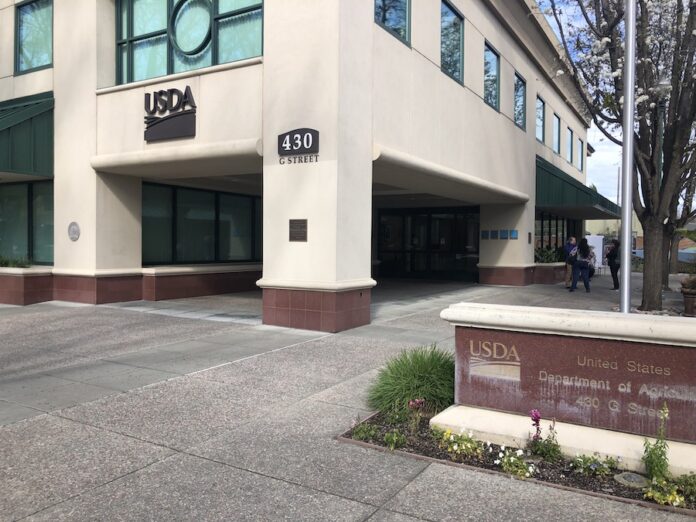Mars, Inc. to research cacao with UC Davis faculty
With temperatures rising in West Africa, climate change is drawing many concerns for what the future may look like for the cacao crop and companies like Mars, Inc.
This business will now be a part of downtown Davis, as the city offers a new location for cacao research. Mars has already started improvements on a structure at 430 G St. that will serve as its facility. This building is also home to the United States Department of Agriculture.
The team of approximately 15 people, along with a contractor and genetics team, will work in this location as a part of the Mars Wrigley Confectionery Cocoa Research and will take full advantage of the highly-ranked agriculture school next door. This team hopes to coordinate and benefit from UC Davis faculty and students who are willing to assist research projects of mutual interest.
“The Mars Cocoa for Generations strategy is a good example of a private enterprise partnering with UC Davis, a leading research institution, to establish more sustainable practices in agriculture,” said Mayor Brett Lee. “This is a perfect fit for the City of Davis, and we’re proud to welcome them here.”
The building and research will be able to begin as soon as this summer. The company will work to figure out the most sustainable practices when it comes to cultivating cacao, as cacao farmers currently produce 20 percent under output potential.
This area remains in need of more resources and cultivation ideas to allow cacao farmers the vital support they have been longing for with insufficient funds from the government. As they are usually funded by the government, agencies or even universities such as UC Davis, steps need to be taken to encourage more funding than what has been offered. Davis City Council saw the opportunity to further aid Mars in bettering the cacao cultivating system.
“The project builds on the relationship we have developed with UC Davis over the last 35 years,” said David Mackill, the director of Cocoa Genetics and Breeding at Mars. “The university, with Mars’ support, is constructing a large state-of-the-art greenhouse complex on campus that will allow university and Mars scientists to maintain a collection of cacao clones that reflect the diversity of the species and to use the collection to breed new clones with higher productivity, resistance to diseases and pests and good quality chocolate. We are excited to have the city and the university as partners.”
As this private enterprise partners up with UC Davis, two pillars lead the strategy that the university and Mars hope to successfully take on, one being “Responsible Cacao Today,” and the other striving for “Sustainable Cacao Tomorrow.”
According to National Oceanic and Atmospheric Administration, the cacao plant is in danger. The crop could be extinct by 2050 due to climate change.
UC Berkeley has also become a key research institution for Mars, as Barry Parkin, Mars’ chief sustainability officer, found their efforts to save the cacao plant to still not be happening fast enough.
UC Berkeley’s first major step was to modify the plant’s DNA with CRISPR technology, something with which UC Davis will now be able to offer assistance.
“Working together, we can expand our plant science research while boosting the productivity and quality of cacao and improving the lives of cacao farmers around the world, as well as creating jobs here in Davis,” said Prasant Mohapatra, the vice chancellor for research at UC Davis.
Mars, Inc. has invested in forward thinking with the reality of climate change and the global marketplace, according to Jennifer Hebets, an MBA student who graduated in 2016 and had the opportunity of working closely with the partnership Davis has with Mars.
Written by: Lauren Tropio — city@theaggie.org




